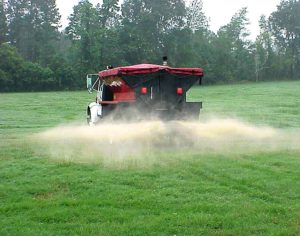Soil additives are different from traditional fertilizers and soil amendments in that they usually have little or no nutrient content. There is no requirement for these products to have a guaranteed analysis label, as long as they make no claim(s) regarding fertilizer value (i.e. N-P-K). Many of these products state on the label that they are not a substitute for a fertilizer program, but enhance the effectiveness of fertilizer normally applied or make nutrients in the soil more available to the crop. They are claimed to improve soil physical, chemical, and biological properties to improve nutrient and/or water availability in the soil and increase crop nutrient uptake.
Most traditional soil amendments and commercial fertilizers have been tested extensively through research trials to document both their benefits and limitations. The benefits from many of these non-traditional products have not been proven scientifically by independent research (McFarland et al., 1998: Non Traditional Soil Additives). Sometimes crop yield can be reduced by some soil additives (Bauder, 1976), but often, no positive or negative effect can be substantiated. Therefore, be very cautious before making a decision to use these products.
The best advice that can be given to growers is to evaluate new products carefully and insist upon local or regional research data (not testimonials) demonstrating product effectiveness and value. Since there are so many products on the market, it is difficult for Extension personnel and university researchers to test all of the products. Nevertheless, Extension agents and specialist may still be able to give you some information based on their experiences with similar products.
Vanessa Corriher-Olson, PhD
Profesor, Forage Extension Specialist
Soil & Crop Sciences
Overton, TX
Texas A&M AgriLife Extension Service
Texas A&M University System
